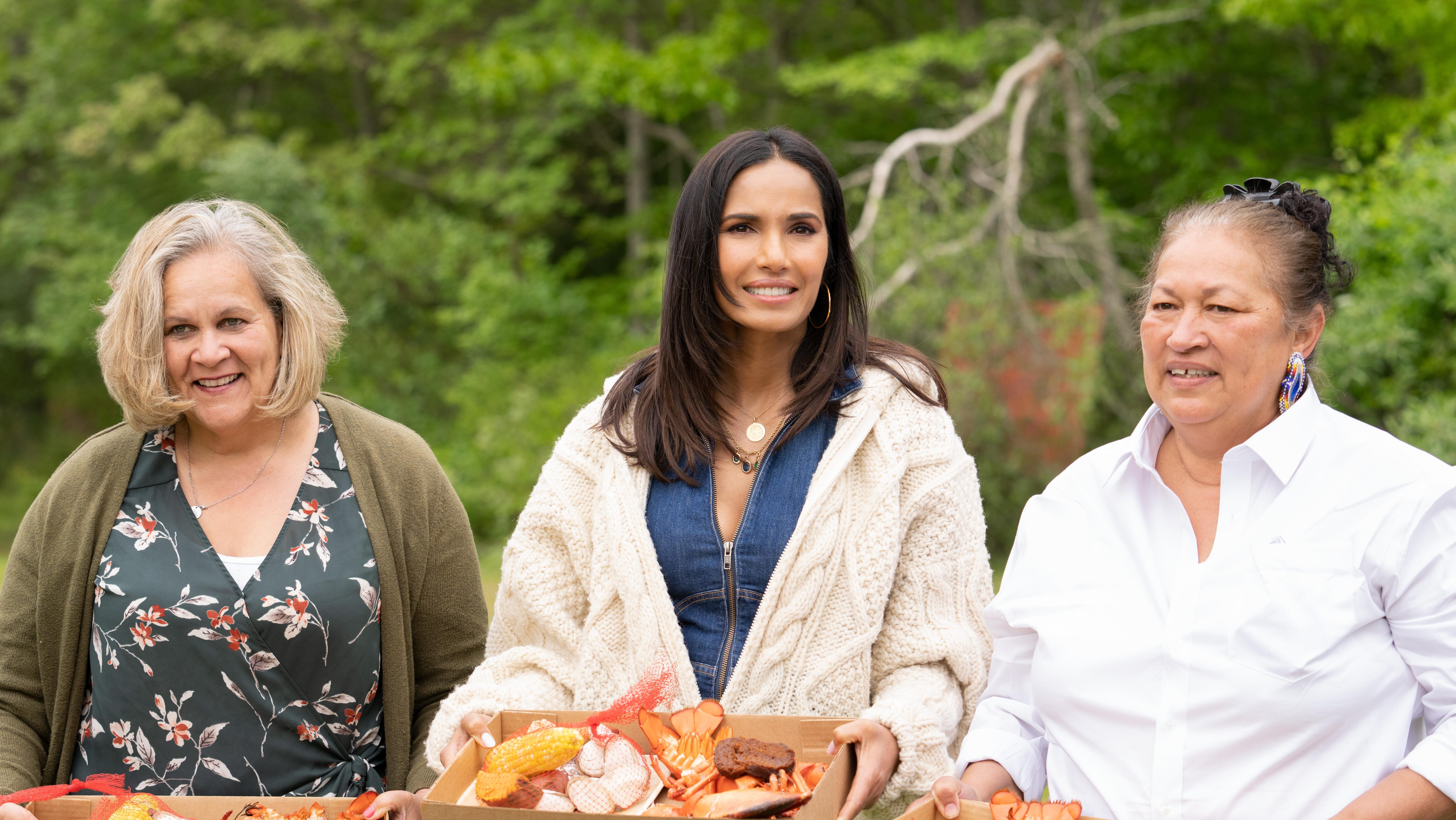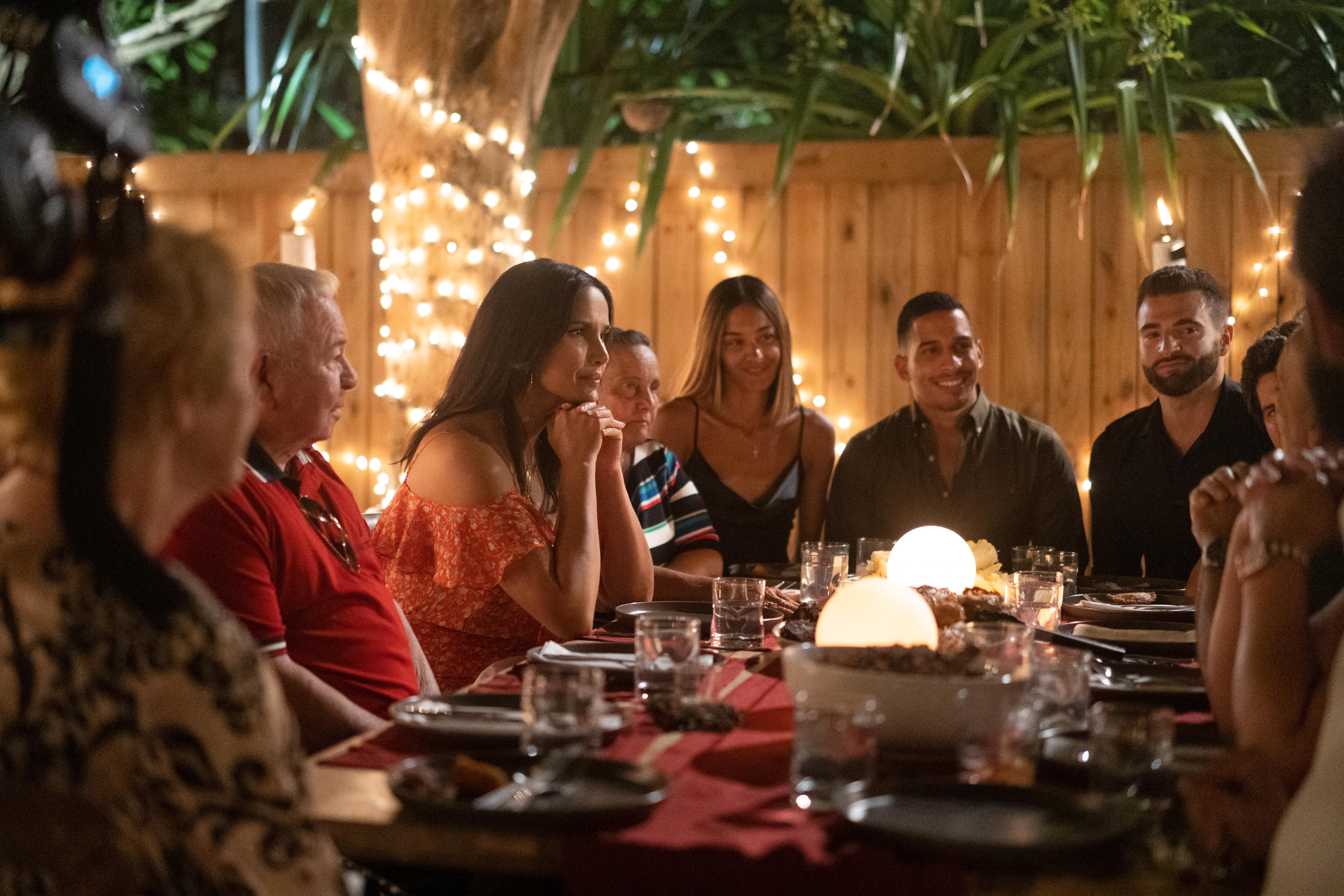

The thing about The Holidays—that catchall American term for the late fall and early winter months—is that they’re familiar. Christmas, New Year’s and Thanksgiving are omnipresent in our culture, and even people who don’t celebrate Chanukah are aware of it. Look past the obligations and stressors and hopefully what you find are the annual rhythms, the traditions, the stories we tell ourselves. It’s all part of what’s supposed to makes this time of year so comforting. Food is a huge part of that—these are feast days, after all—and cooking content tends to shift into high gear as soon as tick-or-treating ends.
This week, Padma Lakshmi’s Hulu series Taste the Nation returns with a four episode “Holiday Edition.” But rather than cocoon viewers with images of sweet potato pies and gingerbread, the series aims to rethinks these familiar holidays from under-represented perspectives. That may sound destabilizing to some, like a bit of a buzz kill to others. But Lakshmi and co. aren’t here to tell us all that Santa Claus doesn’t exist. Instead, Taste the Nation: Holiday Edition aims to complicate our understanding of the holidays, and thus enrich our experience of them.
In its first season, the series followed Lakshmi as she traversed the US, exploring the impact different immigrant communities have had on the country’s cuisine, and by extension its identity. It was a moving journey that exposed yet another fundamental irony about America: the eagerness with which we’ll embrace and appropriate different ethnic flavors and food traditions while rejecting the people with whom they originated.

This season, Lakshmi explores some of our best-known winter holidays from unexpected angles and different perspective, busting certain cherished American myths along the way. In New York, she visits a historic deli on the Lower East Side to speak to the proprietors about Chanukah and its place in the Jewish American experience. Why, she wonders, is this relatively minor holiday the one that is most familiar to most non-Jewish Americans? Is it simply due to its proximity to Christmas? And how do Jewish Americans actually feel about that? In Miami, she celebrates Nochebuena and discovers how this Christmas Eve tradition helps the city’s Cuban American community keep the memory of pre-revolution Cuba alive. She eschews Times Square’s countdown for a trip to LA’s Koreatown to celebrate the Lunar New Year with Drag Race alum Kim Chi. We hear about both the pain caused by the recent uptick in hate crimes against Asian Americans and the tension between an older, more traditional generation of Korean Americans and their children.
In these episodes Lakshmi exposes us different ways of celebrating some of the biggest holidays on the calendar. But in the second episode, which is focused on Thanksgiving, she takes on the myth of that uniquely American feast head on by visiting members of the Wampanoag Nation in Cape Cod and Martha’s Vineyard. It’s a radical, profoundly necessary re-thinking of a complicated holiday, that recenters the experience of the country’s Indigenous people.
Throughout, Lakshmi is, as ever, an unfailingly charismatic presence. She throws herself into the various holiday celebrations whole heartedly. She listens with empathy, warmth and companionable humor as her hosts tell their stories, leading to some genuinely emotional moments. Her project on Taste the Nation is to expand our idea of what America is by taking a closer look at the ingredients in this supposed melting pot. Of course, thorny issues abound. But the goal is inclusion. And, as corny as it may sound, isn’t that what the holidays are all about: Welcoming each other to the shared communal table?














